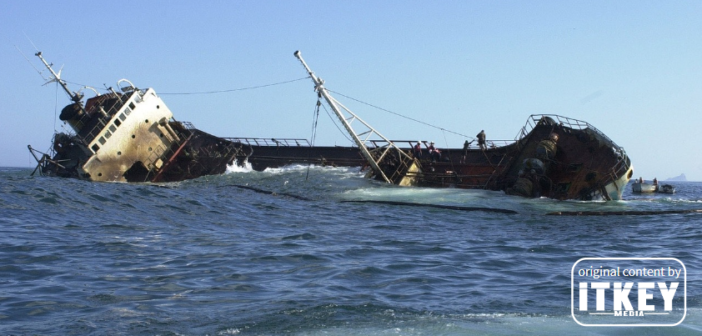The post was originally published in Polish on Szymon’s LinkedIn profile. Szymon kindly agreed to republish what we think is of great value to our readers.
Do not save a sinking startup at all costs, because it will take you down with it.

Szymon Janiak, Co-Founder & Managing Partner at Czysta3.VC
Pressure. A feeling that accompanies founders on the VC path constantly: deliver the result, acquire customers, maintain the team, grow, look for the next rounds… This is all acceptable when there is progress and results in sight. All the effort, along with the sacrifices, is then in some way compensated by the financial result. The organization develops, more people join the team, new countries are opening, – this changes a lot in one’s perception. To put it bluntly – it makes it easier to endure it all. The situation becomes more complicated when these effects are non-existent. Despite constant efforts, nothing goes the way it should, and not only does the startup not develop, but it even regresses compared to others in the market. The competition is moving forward and the technologies evolve, which intensifies the fear of dropping out of the race.
What should I do when nothing works? They say that you have to grit your teeth, be persistent, and fight for the company regardless of the cost. It’s just another test that you have to go through. This is signed by investors who wholeheartedly support or force penalties in the contract (if you prefer). For many, it does not matter that the founder has been in debt for five years, pledged the house and there is actually nothing to live for – they have already put the money in. For those, you should always fight to the end, because they have nothing left to lose.
The founder’s perspective is completely different. Many times, I came across a situation where someone felt that the business lost its meaning, but waded into it further under the influence of their environment. There are individuals who, thanks to surviving such a situation, have achieved success, and their spectacular stories from bootlegger to millionaire were later in the pages of all media.
However, there are many more examples where someone lost because of it – and a lot. They were in more debts because they believed that it was necessary. They destroyed their network because they tried to sell everyone aggressively – only to go bankrupt in the end. Above all, however, they lost their most valuable asset – their own time, which they will never get back. Setting up a new business after such a situation is not a bed of roses, so you need to know when to say enough is enough. There is a fine line between determination and madness – the trick is to be able to feel it.
A great example at the end of this thread is one of the conversations that I recently had with an experienced founder. Having money to take from subsequent investors, he unexpectedly left the table. He said: “The funds have an incentive to prolong it by force. I could already see that this business had lost its meaning, the industry changed, only they didn’t see it. I had a number of alternatives, one career, and the clock is ticking. Prolonging it by force for more years makes little sense for everyone. You have to know when to stop.” And so he did.
The comment sections adds:
Doesn’t it come down to a lack of a sensible plan? Such a plan should also contain exit strategies, i.e. conditions when enough would be enough and the topic closed. Of course, the modern cult of success and the religion of startups forbids even considering the case of failure. Which is just stupid. Any serious planned action should also take into account the scenario when something goes wrong. Define what success and failure mean and agree upon the decisions to make when the defined failure takes place.
– Jacek Salacki, Senior Product Manager at Brainly
A very interesting reflection on the pressure and determination in the life of a startup. We agree that it is necessary to be able to feel the line between determination and insanity and to know when to say enough is enough.
The behavior of the mentioned founder is admirable. As young founders, we also want to make decisions based on reason and not get carried away.
– DYLLI
I felt the whole range of pressure on my own skin when closing my company last year: prove to yourself / investors / competitors that you can do it again, as well as take care of your health / suppliers / customers / employees. I would add that the reason for closing is not always the lack of results: sometimes the industry and the competition change radically, other times investors change their minds and pull the plug in the middle of the dance. Regardless of the circumstances, it is worth taking care of building self-esteem in such moments, even if it involves ending the company.
– Karol Misztal, ex-Founder and CEO at yestersen

Szymon Janiak is an investor and a business-driven Managing Director at czysta3.vc, a Venture Capital fund located in Poland. He has over 10 years of experience in the technology sector. Szymon is also a Member of the Supervisory Board at stockbroker Grupa Trinity S.A.





